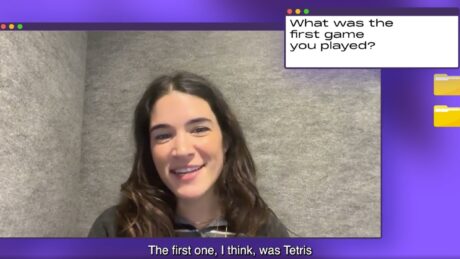Developer Funcom is no stranger to building online worlds, but tackling the Dune series with their next MMO survival game presented unique challenges for player storytelling.
With Dune: Awakening‘s unique take on Frank Herbert’s sci-fi series, players will either band together or face off against each other in Arrakis—all set within an alternate universe where Paul Atreides never existed.
This has created a unique opportunity for developer Funcom to build a more unpredictable version of the hostile desert planet, one that the online community can shape in the future.
At a recent media event for Dune: Awakening in Oslo, Norway, we met with Funcom’s chief product officer and executive, Scott Junior, to uncover the origins of Dune: Awakening, and how they plan to use their experience with world building and crafting survival games to make the most unique Dune video game we’ve seen yet.
A new vision of Dune
The Dune series has already had a notable impact within the strategy game genre, particularly 1992’s Dune 2 and the recent Dune: Spice Wars. Dune: Awakening represents the most ambitious take on a Dune game, focusing on the survival experience on Arrakis, where players must cooperate or compete for resources. The game builds towards endgame, where players advance to guild organizations to fight for control of the planet.
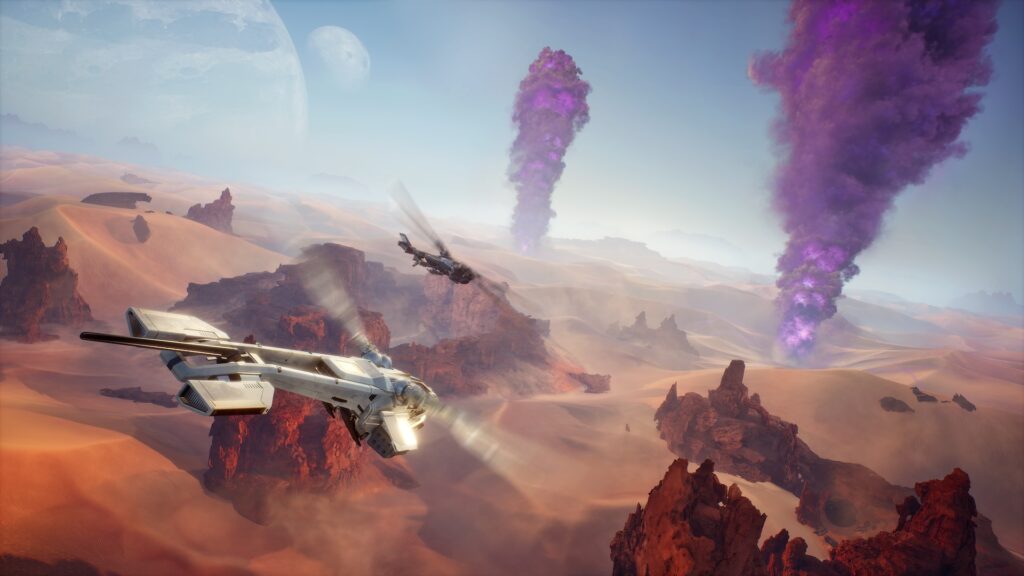
For the developers, the concept for a Dune video game leaned into their previous work on Conan Exiles, but above all, Dune: Awakening had to be authentic to Frank Herbert’s stories.
“A timeline where [Paul] does not exist became the starting point for our project.”
“The beginning of the game for us was when creative director Joel Bylos sat down with the design team reading through the books to decide which path we wanted to go with, and the alternate history that we came up with was a decision to justify making a Dune online survival game,” said Junior. “This concept is also established within the IP, as the idea of the Golden Path and the various timelines that Paul witnessed with his abilities showed him a universe where he does not exist, which became the starting point for our project.”
Along with working with Legendary Entertainment—the production company behind the Denis Villeneuve films and the Dune Prophecy TV series—Funcom went to great lengths to uncover details within the expansive lore to work in concepts that have not been present in other adaptations.
One location players can uncover is lost terraforming facilities, which were designed to make Arrakis more habitable but failed. This is the first time that a Dune video game will let players explore these locations in the vein of dungeons, allowing them to uncover what led to their abandonment by the great Houses.
From scavenger to Duke of Arrakis
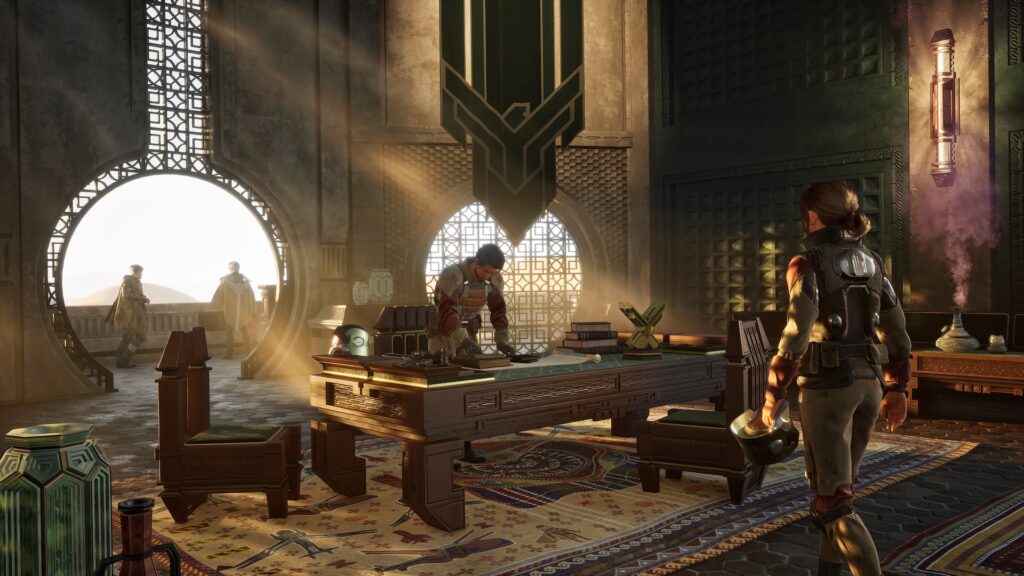
When players start their journey, there are various options for building up their abilities and finding their place within Arrakis. Along with leveling up and crafting new equipment and safe houses, players can travel to settlements to interact with key characters, many of whom can grant them advanced abilities to elevate their character.
The larger goal in Dune: Awakening is to not only master surviving the desert expanse of Arrakis, crafting gear and vehicles to help with traversal, but also to reach the endgame where Dune politics and strategic advancement come into play. This sort of growth, from scavenger to would-be Duke of Arrakis, is a part of the journey for Dune: Awakening, and the road to the endgame is something that most other Dune games have only scratched the surface of.
The road to the endgame is something that most other Dune games have only scratched the surface of.
“The team that worked on the endgame and the economy has been working very extensively on providing tools to the player to build their unique version of politics that looks like in an open-world survival game,” said Junior.
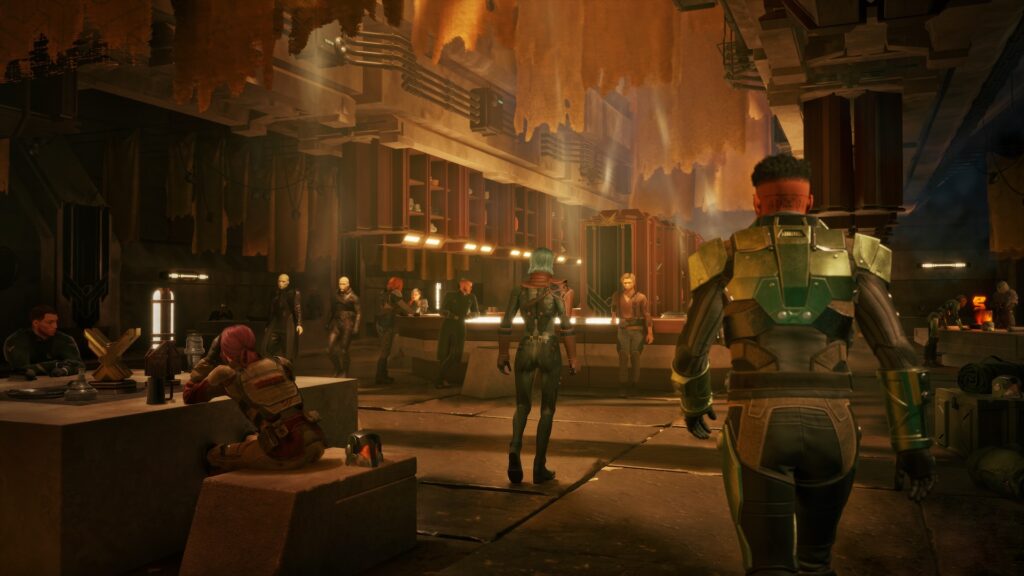
“We’re taking influences from the source material and how players engage with other online games. We even watch how players react playing games on Twitch to see what the flow would be like for the endgame Dune: Awakening experience.”
For Funcom, Dune: Awakening represents an opportunity to chart out their vision of the Dune universe. While the story will go in directions that weren’t possible in the original stories, a core goal for the team was to ensure that they stayed true to the universe’s unique flavor and appeal—which will make the developer’s next online survival game something special for fans and newcomers alike.
“We’re trying to stay very true to the IP, which is cool for us,” said Junior. “We always have to ensure we’re referencing the little details and lore where possible.”
He pointed to the team’s use of “solido projections”—the proper term for holograms in the Dune universe—as an example of the commitment to the source material. The game’s character classes also demonstrate this careful balance between established lore and familiar gameplay mechanics.
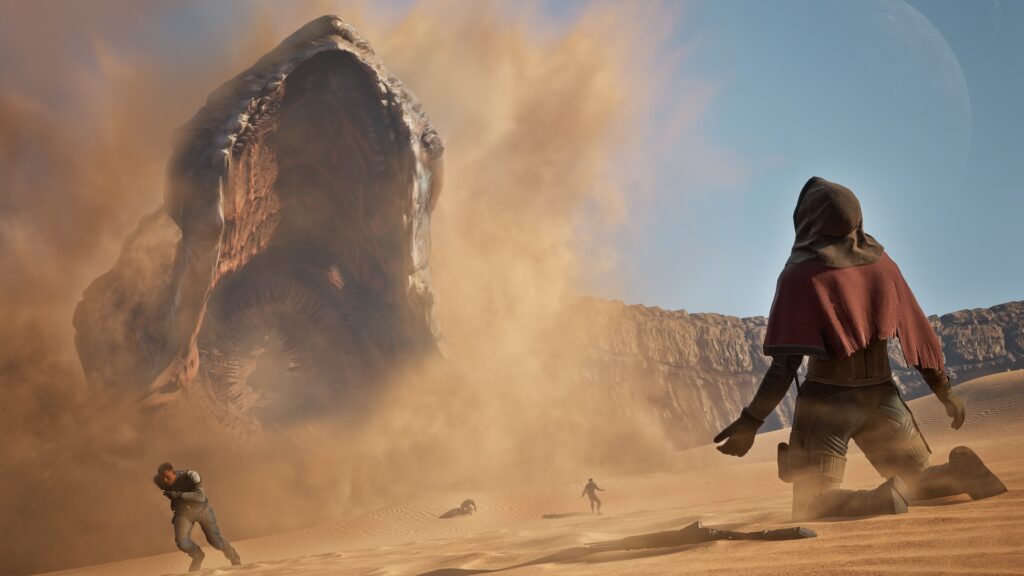
While players might recognize similarities between Dune: Awakening‘s character classes and those found in games like EverQuest 2, each has been carefully crafted to feel authentic to Herbert’s universe.
“The character archetypes and abilities from the trooper or the Bene Gesserit all pull from the source material. The Dune universe gives it such a unique flavor, and it’s been very exciting to update familiar gameplay concepts with the Dune flavor.”
Dune: Awakening is currently in development, and is planned for release on PC, PlayStation 5, and Xbox Series X|S.
